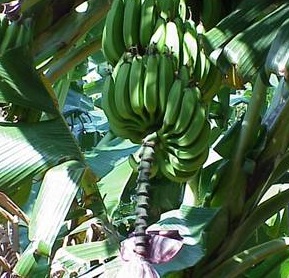Banana Plant Seeds
Growing bananas from seed info:
Commercially grown bananas that are cultivated specifically for consumption do not have seeds. Over time, they have been modified to have three sets of genes instead of two (triploid) and produce no seeds.
If you want to grow banana plants from seed, be aware that the resulting fruit will not be like those you buy at the grocers. They will contain seeds and, depending upon the variety, might be so large that the fruit is difficult to get to.
Bananas grown from seed are normally for ornamental purposes, we do however offer a few varieties that will produce edible bananas ( with seeds of course ), and they have a wonderful flavor superior to store bananas.
Bananas are one of the more difficult seeds to germinate in terms of time and effort required, especially compared to vegetable and flower seeds most gardeners are familiar with, but they can be germinated at a decent rate if one is diligent.
The first thing to understand is that banana seed take a long time to germinate! Nature has built in natural germination inhibitors to insure they do not germinate in the wild too soon.
We have been germinating banana seeds in our germination trials for over 25 years. The normal germination range in our greenhouse trials varies from 1 to 6 months. We have had some varieties germinate in just a few weeks, only to have the same variety take several months during the next germination trial, you cannot predict how long they will take to germinate.
The basic things to remember if you are germinating banana seeds are:
1. Always soak seeds before sowing. We recommend 24-48 hours.
2. Use a well draining soil mix. A mix that holds water will rot the seeds in place.
3.Soil temperature must be at least 68 degrees or warmer for part of the day. But, seeds need alternating temperatures for germinating. We found that just putting a heating mat under the seeds and leaving temperature constant was not nearly as effective as heating the soil for a few hours a day, then allowing it to cool.
4. Keep soil damp, but not wet! Wet soil will rot seeds quickly. Placing the seed tray inside a plastic bag is a good way to keep moisture constant.
5. Be very, very patient. Seeds can easily take several months and in most cases will. We only offer seeds from the latest harvest and have them tested before making them available to our customers. Due to the long germination time of these and the difficulty germinating them, we do not offer a replacement guarantee on these seeds, please consider this before purchasing.
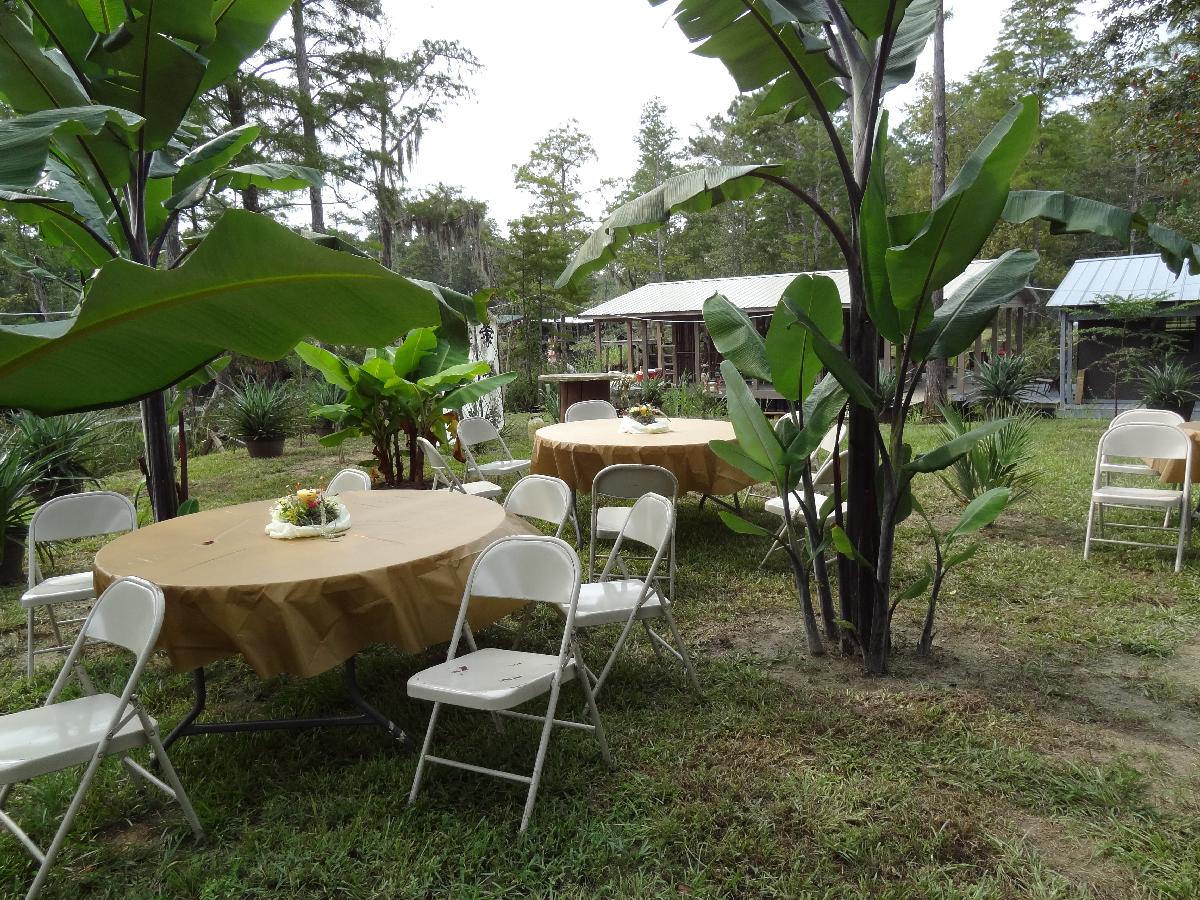
This is a wonderful, fast growing banana with tremendous ornamental appeal. The picture shows 2 year old plants started from seed growing on one of our bayou properties on the Gulf Coast. The more exposure to sunlight, the darker the stem gets. Will grow to a massive 18 feet or taller outside, or can be grown in a container where growth will be limited by container size. Very cold hardy, probably down to 15 degrees if mulched heavy, and loves hot, hot weather as well!
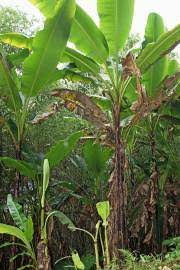
A beautiful, high altitude banana from China's Yunnan Province and Arunachal Pradesh in India that has proven to be a very interesting cold tolerant species that will thrive under similar conditions as the legendary Musa basjoo and M. sikkimensis, even though not quite as hardy. It is a slender stemmed, extremely fast growing plant with large leaves supported by waxy white leaf stalks. Some confusion surrounds the introduction of this banana into cultivation: and it now turns out to be a new species, described in 2007 by Markku Hakkinen as Musa yunnanensis.
Considered hardy to zone 5. Exact hardiness is unknown. It may be close to as hardy as Musa basjoo, and has reportedly tolerated temperatures down to 10F. Upon freezing weather the plant will die back to its base, but quickly grows back once weather warms up.
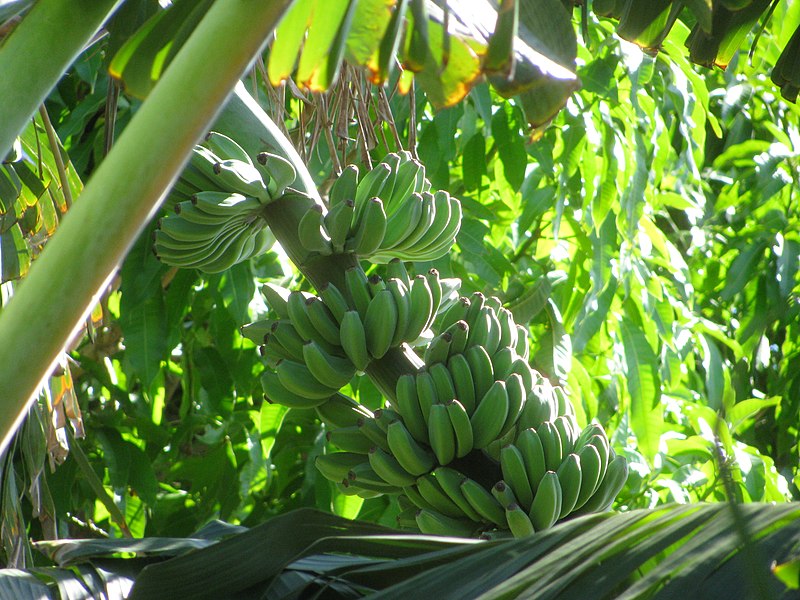
Fruits are full of seeds and are sweet and succulent when fully ripe and are widely eaten out of hand, though they are very versatile and are used in a wide variety of other ways. They can be baked, cooked, dried for later use etc.
Zones 9b and higher outside.


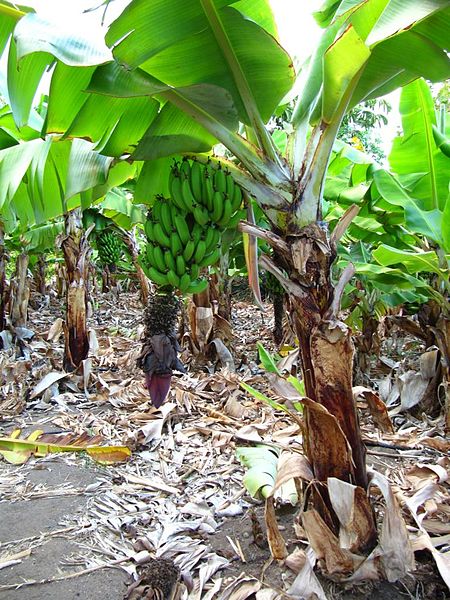
The fruits are about 5 to 6 inches long, which are smaller than the common desert banana. They should be allowed to fully ripen before eating, and of course contain seeds.

Although M. cheesmani has been described half a century ago, we believe this enormously attractive and colorful banana has been introduced into cultivation only recently.
This is a wild type banana plant from the rainforests of Northeast India. Giant, long green leaves . Hardy outdoors in zones 9-12 otherwise grow as a container plant for the yard or deck. Will tolerate mild colder weather. Produces small whitish - green fruits. Should be grown as an ornamental only. Price per pack: $3.95
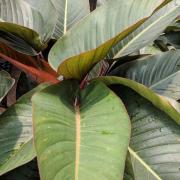
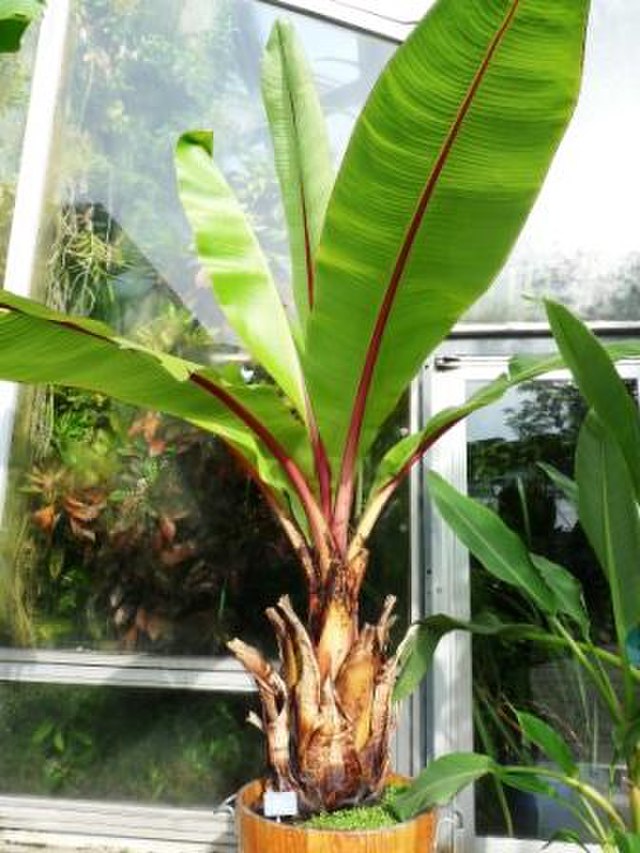
Musa ensete is one of the hardiest types of the Musa family and has very large seeds. This small tree is ideal for conservatories, patios, or as a large potted plant. Only grows about 6 feet tall and is grown for its foliage; unfortunately, no bananas on Musa Ensete. Decorative, huge leaves rivalling any expensive mature house plants. Grows 3 feet in the first four months after seed germination!
Sow anytime of year after soaking the seeds for 24 hours in lukewarm water. Use a peat based seed compost and sow 1/4 inch deep. After sowing, seal the seed container inside a polythene bag in order to keep the compost moist. Germination is slow and erratic and can take 1 - 6 months at 80F. As each seed germinates, transfer it to a 3 in pot of good free draining compost, taking care not to damage the fragile roots. Pot on as required, the larger the container the larger the plant will grow.
Grow Musa ensete bush in warm, well lit conditions. During summer they can be stood outside or planted in the border but should be brought into well lit frost free conditions for the winter when it should be kept moderately dry. Some discoloration of the leaf ends may occur through the winter months but this won't harm the plant.
Zone 8 or higher outside, but often grown as a houseplant or patio plant.

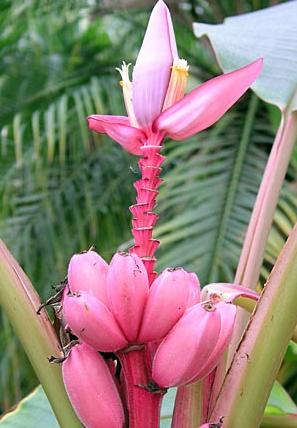
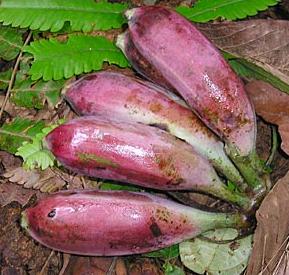
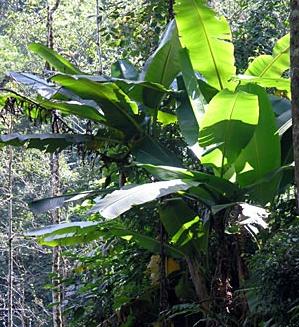
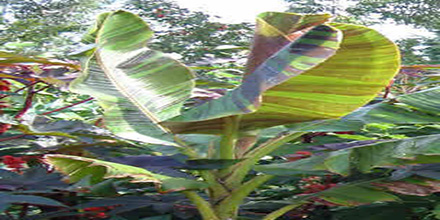
A tall banana from the cool Himalaya region. Grows to 18′ and is hardy to 40 degrees. A beautiful banana, the leaves feature a purple hue to the reverse and a silvery bloom to the pseudostems. This is a very ornamental plant.
A note from one of our customers:
Jim's Plant Growth Stimulator
To see the results for yourself, we advise using it on some plants and not on others and see the difference.
Note: We only ship this product to addresses inside the USA. The following ingredients are used in making Jim's Plant Growth Stimulator:
Gibberellic Acid
Gibberellic Acid is EPA approved, and is commercially used to grow most fruits and vegetables we eat.
B1 Vitamins and Plant Hormones
Micronutrients
Other ingredients
Each 8 ounce bottle of JPG01 Plant Growth Stimulator makes 16 gallons spray-on solution, you can also use a drench and pour it around the base of the plant if you prefer. The bottle comes with a 1/2 ounce measuring spoon, simply mix a half ounce of plant growth stimulator with a gallon of water and spray onto the plants, or drench the soil around the plant. :
Banana Fruit Facts from the California Rare Fruit Growers

